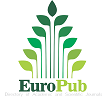Proposal to strengthen parent-child bonds in the future generations regarding the new ITs and comunication
Abstract
At present the use of new trends on technology and communication are becoming more and more relevant in general but especially in families. Among families, if technology and communication are not used wisely they may bring up difficulties. The purpose of this research is to design a proposal to strengthen the parents’ bonds of future generations in connection to information and communication technologies. We would like to explain the anthropological foundations of the person and the family, the essential elements that strengthen parents-child bonds, define concepts from the existing literature review on the influence of new information and communication technologies on children whose parents are millennials. This research follows the bibliographic method and within the methodological approach it is a qualitative research, descriptive and interpretative, with a humanistic line. As for data collection, we consider documentary observation which was used as instruments, in addition to bibliographic, textual, synthesis and summary notes, which allowed the adequate organization of the information obtained from the different printed and digital sources: books, magazines and others. About the ethical criteria we have considered the respect for the person, the search for common interest, justice, and respect for the family; as for the criteria of scientific area we included: explanation of the study of the subject under the anthropology of the person and the family, scientific-humanistic approach, always considering the respect for the person and the standardized on the selection of information and sources. Finally, the result of the research was a proposal that covers three key points: the importance of continuous education in schools for parents where they reinforce their knowledge on these issues and become aware of what they are doing wrong or could be improved, the importance of communication between parents and children, the need for periodic digital disconnection and moments to share with the family, and the education of affectivity, which will be reflected in the healthy emotional development of children.
Downloads
References
Alter, A. (2018). Irresistible ¿Quién nos ha convertido en yonquis tecnológicos? Barcelona, España: Paidós.
Ammari, T., y Schoenebeck, S. (2015). Understanding and Supporting Fathers and Fatherhood on Social Media Sites. Trabajo presentado en 33rd Annual ACM Conference on Human Factors in Comuting Systems, Seúl, Korea. Recuperado de https://www.researchgate.net/publication/300727716.
Bernal, C. (2010). Metodología de la investigación (3º ed.). Bogotá, Colombia: Pearson
Burgos, J. (2009). Antropología: una guía para la existencia (4º ed.). Madrid, España: Palabra.
Capilla, E. (2015). Phubbing: conectados a la red y desconectados de la realidad. Un análisis en relación con el bienestar psicológico (Trabajo Fin de Máster). Universidad de Extremadura, Badajoz, España. Recuperado de http://dehesa.unex.es/bitstream/handle/10662/3455/TFMUEX_2015_Capilla_Garrido.pdf?sequence=1.
Cataldi, Z., y Dominighini, C. (2015). La generación millennial y la educación superior. Los retos de un nuevo paradigma. Revista de Informática Educativa y Medios Audiovisuales, 12(19), 14-21. Recuperado de http://laboratorios.fi.uba.ar/lie/Revista/Articulos/121219/A3.pdf
Chirinos, N. (2009). Características generacionales y los valores. Su impacto en lo laboral. Observatorio Laboral Revista Venezolana, 2(4), 133-153. Recuperado de http://www.redalyc.org/pdf/2190/219016846007.pdf.
Cid, M. Sociedad, familia y escuela: El reto de educar. Madrid, España: CEU.
Domínguez, X. (2007). Antropología de la familia. Persona, matrimonio y familia. Madrid, España: BAC
Echeburúa, E., y de Corral, P. (2010). Adicción a las nuevas tecnologías y a las redes sociales en jóvenes: un nuevo reto. Adicciones, 22(2), 91-96. Recuperado de http://m.adicciones.es/index.php/adicciones/article/view/196.
Fernández, L. (2016). Antropología de la familia. Universidad Pontificia Bolivariana, 55(155), 91-102. Recuperado de https://revistas.upb.edu.co/index.php/upb/article/view/6320/5810
Floridi, L. (2015). The Onlife Manifesto. Being Human in a Hyperconnected Era. doi: 10.1007/978-3-319-04093-6
Fromm, J., y Vidler, M. (2015). Millennials with kids: Marketing to This Powerful and Surprisingly Different Genetarion of Parents. AMACOM.
Goleman, D. Inteligencia emocional. Barcelona, España: Kairós.
Gómez, J. (2016). Criterios teóricos y prácticos que orientan el uso de dispositivos móviles en la comunicación familiar con adolescentes (Tesis de Maestría) Universidad Católica Santo Toribio de Mogrovejo, Chiclayo, Perú. Recuperado de http://tesis.usat.edu.pe/xmlui/handle/20.500.12423/878
Guardini, R. (2002). Las etapas de la vida. Madrid, España: Palabra
Gutting, D., y Fromm, J. (septiembre 2013). Millennials as new parents: the rise of a new American pragmatism. Kansas, MO: Barkley. Recuperado de http://www.millennialmarketing.com/wp-content/uploads/2016/05/FutureCast_Millennials-as-New-Parents-Report-1.pdf
Hernández, R., Fernández, C., y Baptista, M. (2014). Metodología de la investigación (6º ed.) México DF, México: Mc Graw Hill
Junquera, C. (2015). Desconectados del entorno y conectados a la red: tan cerca pero tan lejos. KubernÉtica.2-8. Recuperado de http://www.kubernetica.com/documentos/articulos-academicos/desconectados-del-entorno-y-conectados-a-la-red-tan-cerca-pero-tan-lejos.pdf
Melendo, T. (1999). Las dimensiones de la persona. Madrid, España: Palabra
Mooney, A., y Fernandez, J. (julio 2015). Los papás “millennials” acuden a la web para aprender sobre crianza. Recuperado de https://www.thinkwithgoogle.com/intl/es-419/recursos-y-herramientas/b%C3%BAsqueda/millennial-dads-turn-to-digital-in-moments-of-need/
Morales, T. (2008). Hora de los laicos. En Vida y obras de Tomás Morales, SJ (Vol. 2, pp. 409-790). Madrid, España: BAC. Murillo y Ruiz
Prades, J. (2001). Familia, persona y libertad al inicio del tercer milenio. En J. Gallego y J. Pérez (Eds.), Pensar en familia (pp. 265-291). Madrid, España: Palabra
Prensky, M. (s.f). Nativos e inmigrantes digitales. Recuperado de http://marcprensky.com/writing/Prensky-NATIVOS%20E%20INMIGRANTES%20DIGITALES%20(SEK).pdf Rivera y Larios
Sanabria, J. (2018). El Desafío de Retener el Talento de los Millennials en las Organizaciones. Recuperado de http://hdl.handle.net/10654/17738
Serrano, J. (2014). Por una dieta digital: hábitos mediáticos saludables contra la “obesidad informativa”. ÁMBITOS, (24), Sevilla, España. Recuperado de https://institucionales.us.es/ambitos/por-una-dieta-digital-habitos-mediaticos-saludables-contra-la-obesidad-informativa/
Silva, F., Santamaría, E., y Jimenez, W. (2017). Las redes sociales elemento determinante de los huérfanos digitales, Revista Tecnológica ESPOL–RTE, 30(1), 70-78. Recuperado de http://www.rte.espol.edu.ec/index.php/tecnologica/article/view/567/357
Sobrino, L. (2008). Niveles de satisfacción familiar y de comunicación entre padres e hijos. Avances en Psicología, 16(1), 109-137. Recuperado de http://www.unife.edu.pe/pub/revpsicologia/sastisfaccionfamiliar.pdf
Vegue, F. (2016). Inteligencia emocional y uso problemático del smartphone en adultos (Trabajo Fin de Máster). Universidad Pontificia Comillas, Madrid, España. Recuperado de https://repositorio.comillas.edu/xmlui/bitstream/handle/11531/10105/TFM000412.pdf?sequence=1&isAllowed=y
Viladrich, P. (2005). El valor de los amores familiares. Madrid, España: Rialp
The authors retain copyright.
This work is under international license Creative Commons Attribution 4.0.
The articles published by the scientific journal "Notes on Bioethics" of the Universidad Catolica Santo Toribio de Mogrovejo, Chiclayo Peru, can be shared through the international public license Creative Commons Attribution CC BY 4.0
























 LIBRARY USAT
LIBRARY USAT